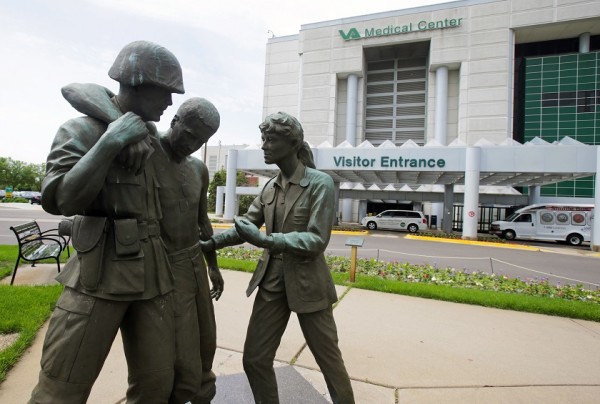

For veterans dealing with chronic pain, the pain program at a VA medical center in Bedford, Massachusetts, offers an alternative treatment method that doesn’t rely on prescription drugs.
According to WBUR, a National Public Radio news station, the Department of Veterans Affairs has 67 such pain schools that offer five-week, 15-hour courses emphasizing nutrition, sleep, exercise, breathing, visualizations, and stress management as a part of a holistic method for managing chronic pain.
Central to these pain schools is the idea that patients will need help at many stages as they deal with their pain.
“We’re not curing your pain, we are not taking it away, but it’s a way of helping you to manage your pain and live your life and function better,” said psychologist Tu Ngo in the WBUR news report.
One of the program’s goals is to reduce the use of opioids in treating chronic pain. Ngo works at the VA’s pain school in Bedford, which currently has the third lowest opioid-prescribing rate among VA medical facilities in the country.
However, this approach doesn’t work for everyone. About half the students at Bedford’s school drop out before the class ends, reports WBUR.
For those who stick with the program, there is no guarantee that the pain program will end their pain entirely, but it may provide patients with a way to reduce their pain without the risk of side effects from prescription drugs, or a reliance on potentially addictive medication.
Related: The VA’s Attempt To Fight Opioid Dependence Leaves Pain Patients Cut Off »
While research shows that opioids relieve acute pain, the Centers for Disease Control report that there’s little evidence that they ease chronic pain, which is typically defined as pain that continues for three months after the initial injury or ailment.
The pain schools are part of an effort by the VA to change how patients think about and chronic pain.
“Right now, many patients feel like it’s a mechanical model of pain, where if you just take the part out and replace it or suppress the pain in the brain, that takes care of it. But it doesn’t,” said Dr. Rollin Gallagher, the national pain management director for the Veterans Health Administration, reports WBUR.